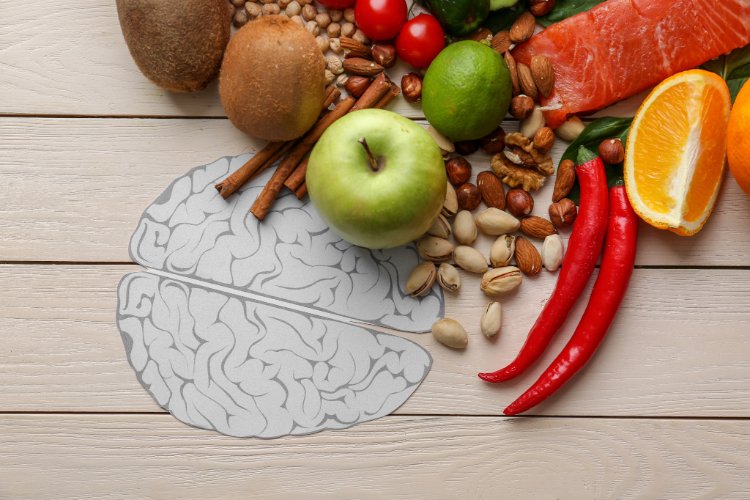How to Use Nutrition for Better Mental Health
When you eat well, you feel well.
As I discuss regularly, the relationship between your gut health and your mental health is critical to your overall wellbeing. With over 600 million neurons living within your gastrointestinal tract, your digestive system essentially acts like the “second brain” of your nervous system.
The more we understand the gut-brain connection, the more we understand our ability to use nutrition to better our mental health and cognitive function.
Nutrition and Your Happiness
In 2019, The American Journal of Clinical Nutrition found that clinically depressed patients who ate vegetables daily experienced reduced symptoms. Similar studies have found that traditional diets such as the Mediterranean diet can lower symptoms of depression and anxiety when compared to other diets.
Why? Because what we eat matters.
95% of the body’s serotonin, the mood-boosting hormone, is produced in the gastrointestinal tract. If your gut isn’t functioning properly, neither will your head — and vice versa.
Here’s how you can start making a difference.
Say No to The Quick Fix
As any one of us who has stuck her hand inside a bag of chips only to find it empty a few minutes later knows, junk food can be addicting. It’s easy, it’s cheap, it’s delicious, and it’s often the perfect pick-me-up for a bad day.
When we’re feeling down, we crave candies and ice creams and salty treats that will make us feel better right now. These foods can stimulate a dopamine rush that has an addictive effect. But when it fades, we go back to being sad or stressed, and then we want some more.
It can all lead to a vicious cycle that, if not broken, can leave you feeling even more anxious or depressed than when you started.
Never Shop Hungry
At one point or another, we’re all going to crave a treat. That’s fine. But if you’re looking to grab some comfort food, do your absolute best to find a healthy option.
One of the best tricks I’ve found to leaving myself with only the most nutritious options is to make sure that I’m always going to the grocery store with a clear mind, full stomach, and solid plan.
Fill your house with foods that will satisfy your cravings and keep you full for a long time. Plan them out well in advance. Stock up early. Meal prep, if you can.
What you don’t want to do is find yourself hungry and fussy without a plan — that’s when we gravitate towards what’s easy.
Key Nutrients to Support Your Mental Health
Magnesium
Several studies have found an association between magnesium deficiency and mood disorders such as anxiety and depression. As a key nutrient for leveling out your body’s cortisol levels (A.K.A. the stress hormone), magnesium is important for maintaining a sense of calm.
Food Sources:
Nuts and seeds
Leafy green vegetables
Spinach
Tuna
Suggested Supplement: Magnesium CitraMate
Complex Carbs
A perfect alternative to the processed flours and sugars that make up most junk food, complex carbs offer your body energy that lasts. Instead of immediately feeling hungry again, complex carbs keep you satisfied, releasing energy more slowly and stabilizing your blood sugar levels. This more-sustainable energy source will help keep you from feeling fatigued, irritable, and anxious.
Sources:
Brown rice
Starchy vegetables
Quinoa
Millet
Choline
One of the lesser-known nutrients on the list, choline is incredibly important to your nervous system. Among other things, it plays a role in your memory function and the forming your cell’s membranes. And while a small amount of choline is naturally produced in your liver, the rest needs to be found in your diet.
Sources:
Dairy products
Salmon
Meat and poultry
Eggs
Cruciferous vegetables
Whole grains
Lean Proteins
Protein is at the center of almost every healthy diet, and there’s no difference here. The amino acids in protein are critical to your brain’s ability to produce the neurotransmitters needed to guide your thoughts and feelings. And like with complex carbs, protein is a great source of energy.
Sources:
Chicken
Meat
Fish
Eggs
Soybeans
Nuts and seeds
Legumes
Vitamin D
Vitamin D is a mood-boosting nutrient. And while healthy amounts of vitamin D can be found simply by living an outdoor lifestyle, not everyone has the opportunity or ability to absorb the needed amount of vitamin D. That’s why it’s important to supplement nutrient-rich foods into your diet, as deficiencies have been linked to depression and anxiety.
Sources:
Fish
Mushrooms
Egg yolk
Fortified milk
Suggested Supplement: Vitamin D + K2 Liquid
Omega 3 Fatty Acids
Healthy fats like omega-3 fatty acids are important to your brain’s general function and development. And while these fatty acids are most commonly found in fish, many will also supplement their intake with fish oil pills to improve their cognitive health.
Sources:
Fish
Avocados
Olive Oil
Eggs
Nuts
Flaxseeds
Gut Health is Mental Health
When in doubt about how to improve your mental health through your diet, always begin with gut-healthy foods. Increase your intake of the prebiotics and probiotics that will ensure the quality and makeup of the “good bacteria” in your belly.
And if you’re looking for some more personalized advice, reach out for a free 20-minute consultation. I have one-on-one holistic consulting packages that will help you improve your gut health and get you feeling better than ever!





